2 Months & 0 Active Cases: How Beed Police Kept the District Safe from COVID-19
With 40,000 labourers returning to Beed from their workplaces, the risk of a COVID-19 infection was high. But here's how the cops swung into action.
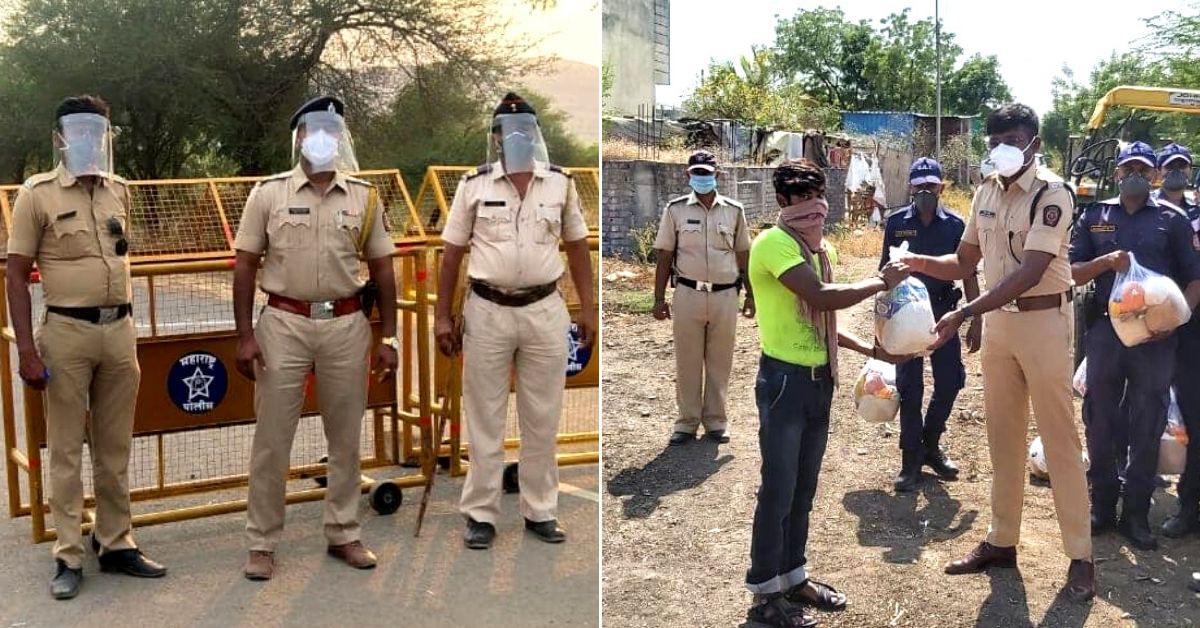
With The Positive Collective, The Better India’s COVID-19 coverage is available to regional language publications for free. Write to [email protected] for more details.
Even as Maharashtra continues to report the highest number of COVID-19 cases, Beed, an agricultural district in the state has remained relatively untouched by the deadly virus.
This is especially astonishing as the district neighbours Solapur and Aurangabad and has close economic ties with Pune—all red zone districts—and shares its borders with the orange zone districts of Latur, Ahmednagar and Jalna.
A portion of the credit goes to the government, the health department and revenue department which came together and worked hard to ensure that the district remained COVID-free.
But, the true heroes here are the members of Beed’s police force whose surveillance, monitoring and close observation played a crucial role in keeping the district safe.
The Better India (TBI) spoke with Harssh A Poddar, an IPS officer and the current Superintendent of Police (SP), Beed to understand how they went about their work.
“Our expertise is maintaining law and order. We are used to working in events such as public celebrations, riots or even curfews. But this was unprecedented. We quickly realized that it was crucial not just to maintain peace and social distancing but also to educate the public. They needed to understand that stepping out would put their own life at risk,” he begins, before elaborating on the steps taken.
Sealing Borders To Ensure Safety of Those Inside
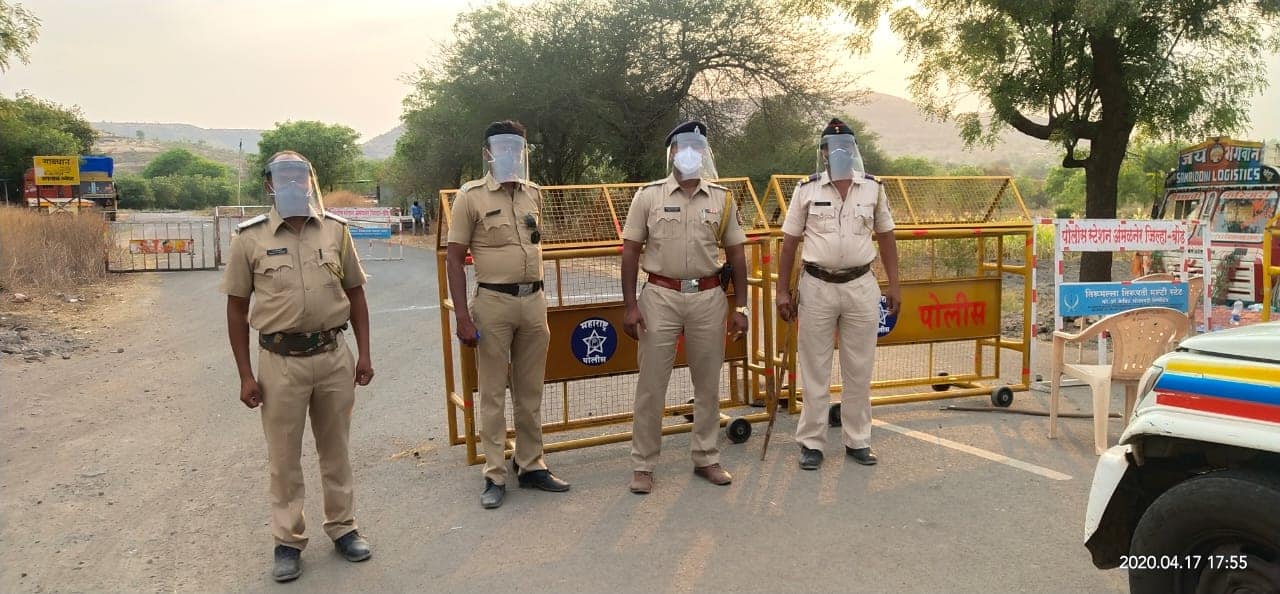
Over 40,000 people from the district are engaged in occupations in other towns and cities, and by the time the Janata Curfew was scheduled (22 March), the authorities in Beed realised that many of them would return home.
Then, Maharashtra sealed all-district borders on 23 March, and with it, the risk of getting COVID-19 positive people inside Beed was somewhat reduced. However, that wasn’t completely foolproof. Workers, migrant labourers etc. still tried to escape back home.
So, Poddar, along with his team, planned several regulations to check every person trying to enter or leave Beed.
The 15 entry points into Beed were heavily staffed by police personnel to check who was coming in or going out. Additionally, kaccha roads were dug up so no person may sneak into the district through such routes. All officers were given protective gear, which helped when a group of people tried to sneak into the district and were later tested positive for COVID-19.
“This group was travelling from Haryana to Hyderabad via Beed. But they didn’t have the right passes to enter our district. The personnel deployed on the border did not allow entry, so they turned to Latur instead. There, the group was tested positive. That brought us great panic because the 18 police personnel, as well as their family members, were now in contact with them directly or indirectly. So, we got them tested and asked them to self-quarantine for two weeks. Thankfully, the reports were negative,” the SP tells TBI.
Hanuman Ugale, who stands at toll points for 12 hours a day and was one of the police personnel who had to get tested, tells TBI, “Our job is to check if the vehicles getting in our out have the appropriate permissions. About 30-40 cars with proper passes go through. We have to register cases against the others considering the curfew rules.”
Understanding the Enemy
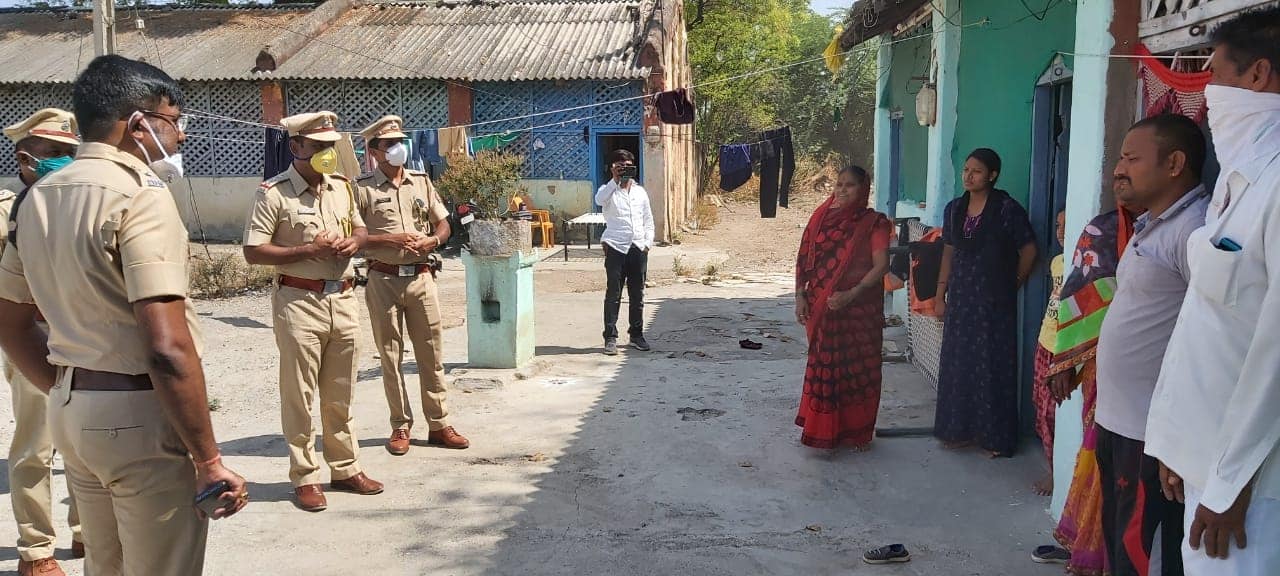
Co-ordination on the authorities’ part was as crucial for these operations as citizens’ cooperation, and Poddar and his team took the responsibility to make the public aware of the danger they were facing.
“Unlike a metropolitan city where information is readily available, we were dealing with limited access to information as well as rumours. The citizens have the right to know what is going on, why their villages are hit and why the police presence is increased.”
So, Poddar and his team took to social media and started spreading awareness about what is allowed, what is prohibited, among other things. The police personnel also spoke with the sarpanch and other local leaders, asking them to pass on the information to their communities. The local leaders were made to report any person who has returned to the village recently.
Shantaram Rokde, a hawaldar, shares, “We go from village to village and speak to the people there. Mobile vans with speakers, WhatsApp groups are all an essential part of our campaigns. But I also visit the home quarantine facilities where the labourers are staying and speak to them about the issues they are facing if they are showing symptoms etc. This is important to keep the others safe.”
One case was reported in Beed in the first week of April. This person had attended a gathering in the neighbouring Ahmednagar district and contracted the disease there.
Fortunately, he recovered and has now completed the mandatory 14-day home quarantine period too. Since his quarantine period wasn’t yet over by 31 April, Beed had to be put in the orange zone. Today, however, it has gone back to zero active cases, and we hope that it stays so in the future.
IPS Officers’ Efforts for the Villagers in Beed
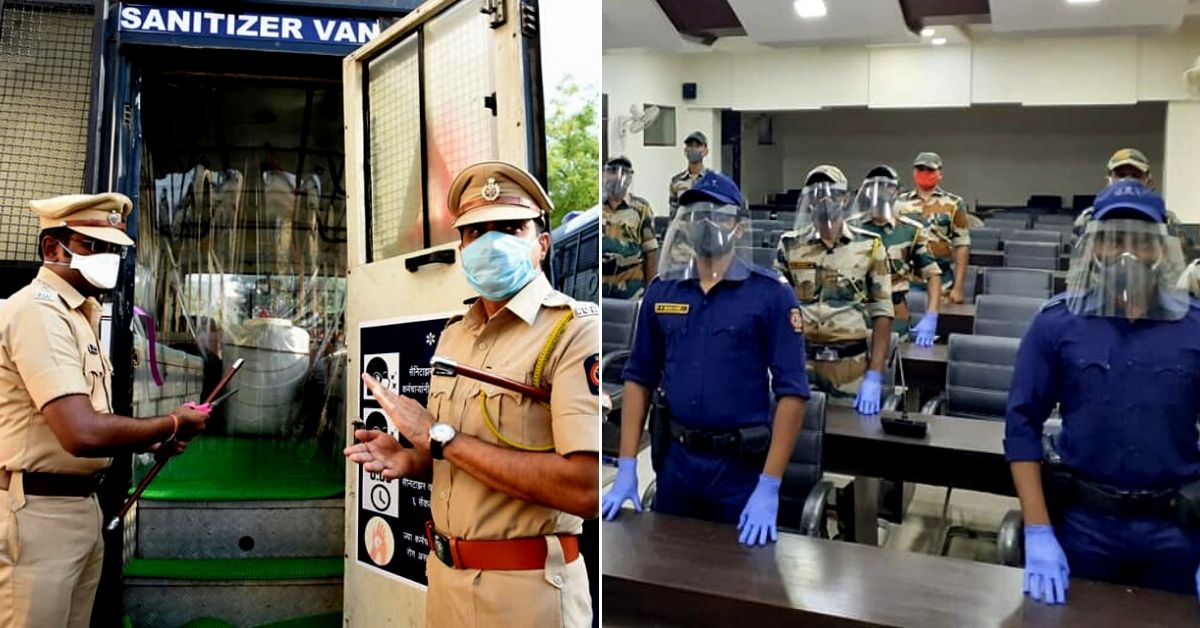
Over 80 per cent of Beed’s population is rural, and the primary occupation is agriculture. It was the time to sow the summer crop when the lockdown and subsequent curfew was announced, and the farmers wondered what would happen to their annual income. Would they have no money?
“We assessed various occupations for their tendency to invite a crowd. For instance, if a farmer is going to his field alone to till the land, he is just as safe as he is at home. To ensure that farmers can maintain at least a part of their livelihood, we gave a free pass to occupations that could be undertaken in solitude,” IPS Poddar tells TBI.
He further adds that to give some leeway to occupations related to agriculture—like selling the harvest or purchasing fertilizers—streets were marked. Not more than three people were assigned to each street, and they could sell their goods only there. In cases of permanent shops, squares were marked for customers to adhere to, to follow social distancing.
“Of course, their income has fallen, but whatever they earned is still better than nothing. Such remedies and adaptive actions are still active in Beed, and many of them are the result of ideas given by police personnel who work on the ground!” Poddar says.
Finally, these were not the only measures taken.
Here is a list of all precautions taken by the police in the wake of the COVID-19 lockdown:
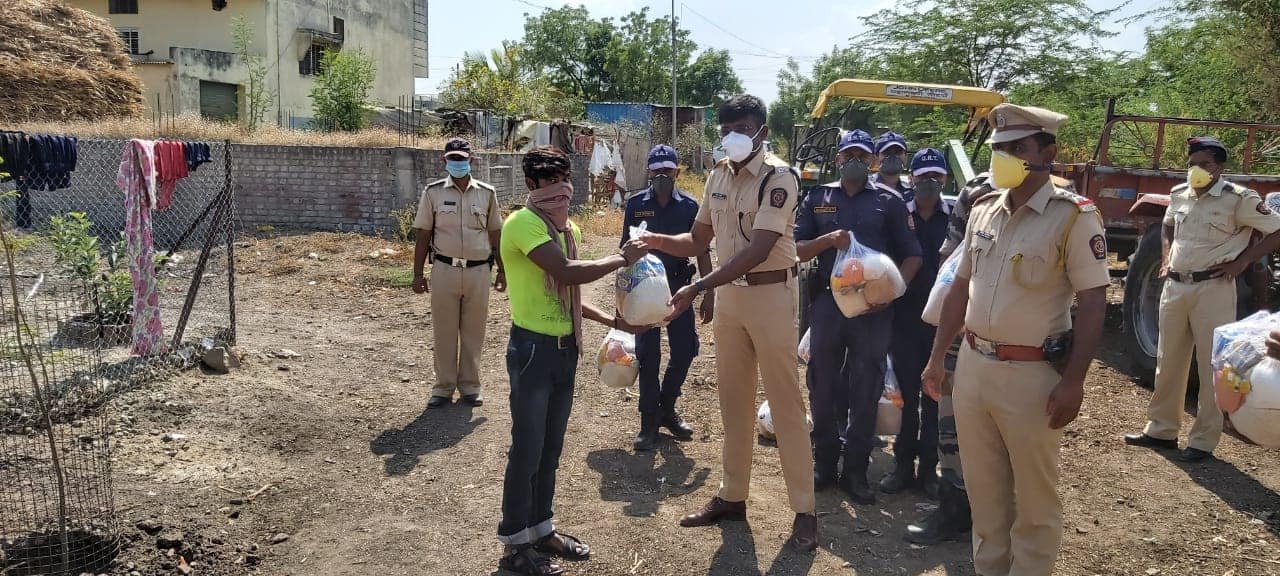
- Restricted movement with online passes: In case of emergencies or if a person needs to purchase essential goods, passes were provided to them. This ensured hassle-free commute. The SP himself oversaw all the requests and accepted only those that were genuine or important.
- Help Cells: Control rooms and help cells were opened for sugarcane cutters, domestic violence victims as well as personal emergencies. The police personnel deployed there would address every request, question, query and arrange for appropriate measures.
- Video messages to leaders: By circulating video messages, the Beed police ensured that information goes via local leaders to all the communities. This way, they could also debunk rumours and myths.
- Social media monitoring: A special cell was formed to look out for misinformation, rumours or hate speech. The district reported 27 cases of misuse of social media during the COVID-19 lockdown- the maximum number in Maharashtra.
- Patrolling: Police personnel, as well as drone cameras, monitored the 10,600+ sq km district and looked out for illegal activities, miscreants etc.
- Distribution of food grains: So labourers and those who have lost their livelihood don’t go hungry during the lockdown.
- Geo-fencing of the home quarantined: To keep track of those supposed to be under home quarantine, the Beed police geo-fenced their homes and installed apps on their phones that allow geo-tracking. Physical checking was also done to ensure they don’t sneak out.
- For the police, by the police: Safety gear, sanitation vans, health check-ups and home delivery of essentials for the police personnel ensured they keep safe and healthy while on duty.
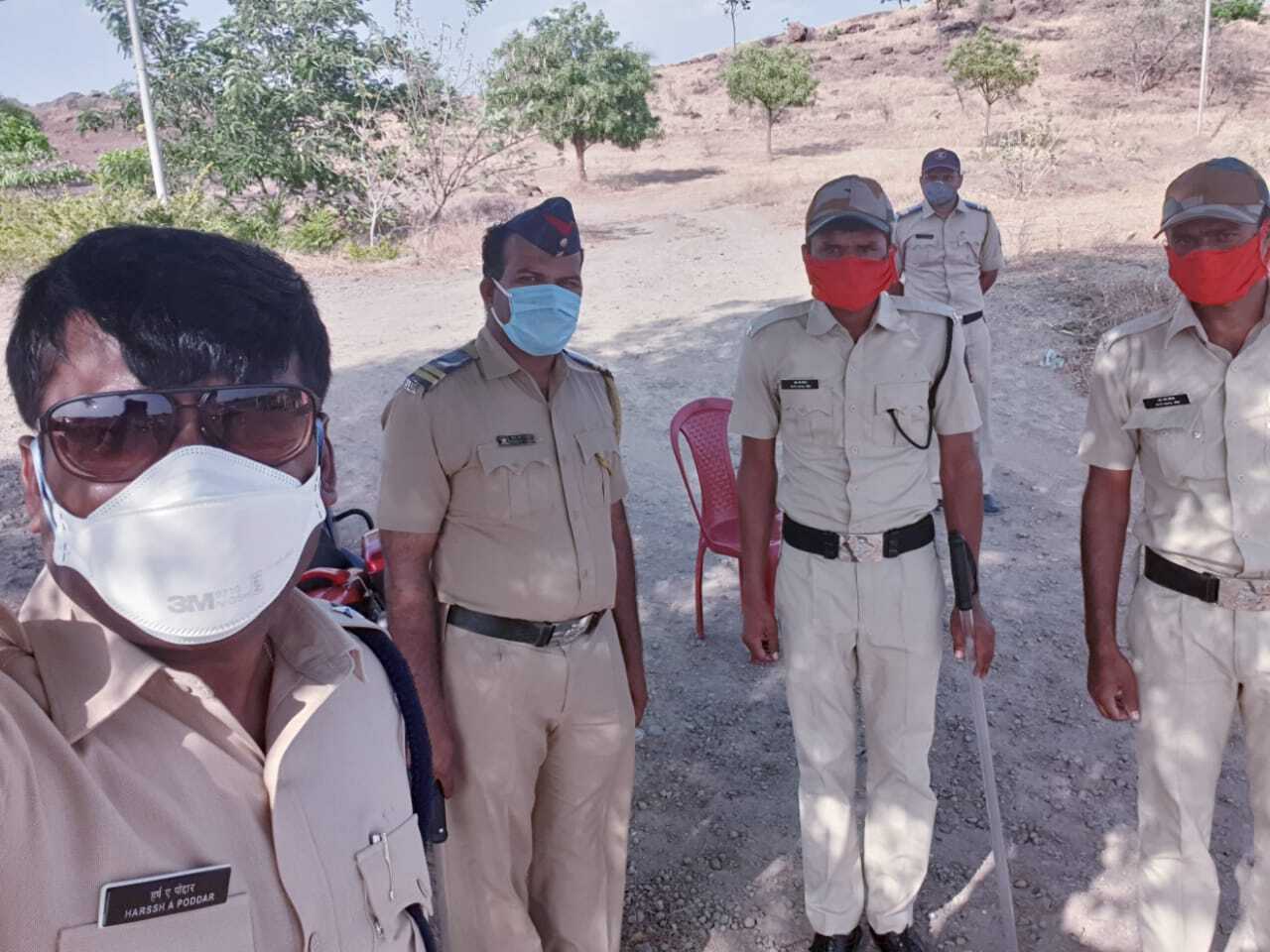
As Poddar mentioned before, this is an unprecedented occurrence and is no blueprint to work with. There will be trials, errors and successes.
In the case of Beed, on-ground solutions, a bottom-to-top approach towards regulations, active spreading of awareness and monitoring have contributed to keep the positive cases to the minimum.
(Edited by Gayatri Mishra)
All Images Sourced From Beed Police/ Facebook.
Like this story? Or have something to share? Write to us: [email protected], or connect with us on Facebook and Twitter.
If you found our stories insightful, informative, or even just enjoyable, we invite you to consider making a voluntary payment to support the work we do at The Better India. Your contribution helps us continue producing quality content that educates, inspires, and drives positive change.
Choose one of the payment options below for your contribution-
By paying for the stories you value, you directly contribute to sustaining our efforts focused on making a difference in the world. Together, let’s ensure that impactful stories continue to be told and shared, enriching lives and communities alike.
Thank you for your support. Here are some frequently asked questions you might find helpful to know why you are contributing?


This story made me
-
97
-
121
-
89
-
167











